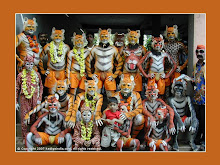Google has elevated the profile of its attempt to make videos searchable through speech recognition technology, a move that portends a potentially more financially successful YouTube division.
The speech recognition technology was used in an online application that let people search political speeches launched in July, and now the Gaudi (Google Audio Indexing) project has an official interface at Google Labs.

Google Audio Indexing (Gaudi) lets people use a text search of some YouTube videos. (Click to enlarge.)
(Credit: Google)The site's search box has instructions: "Search what the politicians are saying." The search results are presented next to a YouTube video player, and clicking each result sets the player to show the part of the video where the words were spoken. It doesn't just show speeches--a search for "bridge to nowhere" also returned the "Real Mavericks" ad from the John McCain-Sarah Palin campaign.
Extracting words from videos could make it easier for Google to determine what content is in the video and therefore what ads are most appropriate to show next to them. Making money from YouTube is a top priority this year.
Speech-to-text conversion also could help Google blend relevant videos into search results. Currently, the best way to understand what's in a video is by examining the accompanying metadata, such as titles and captions, but that's often much narrower than what's spoken.
And with Google's translation work, it's possible that the company could transcribe videos' text into other languages.
Clearly, Google has big ambitions for the audio recognition technology. "The aim of Google Audio Indexing on Google Labs is broader (than that of the and the Google Elections Video Search gadget), and the U.S. election is just a first step. We see it as an experiment platform where we can learn what features make the best user experience for people looking for spoken content on the Web," the company said in a frequently-asked-questions page about the Google Audio Indexing project.
Google is beginning with political information because it's trying to become a prominent part of the democratic process and because political speeches receive a lot of attention, the company said. Also, presumably because politicians generally don't mumble as much as the rest of us, the speech recognition technology performs better, Google said.

